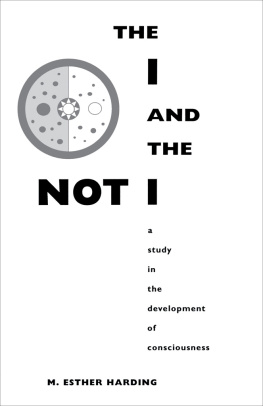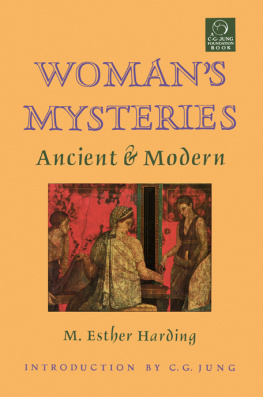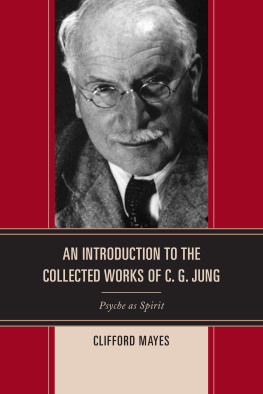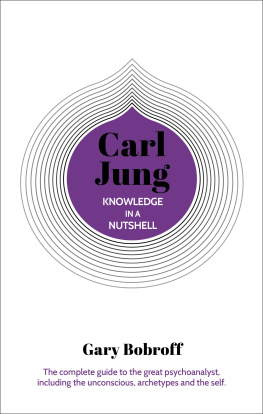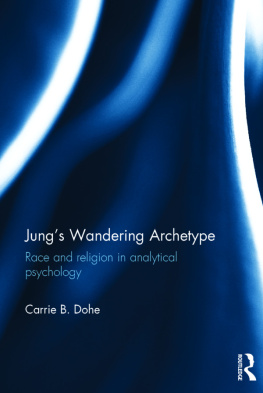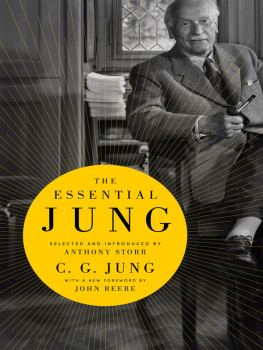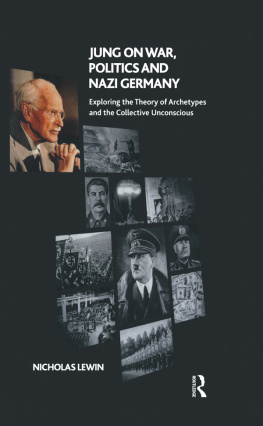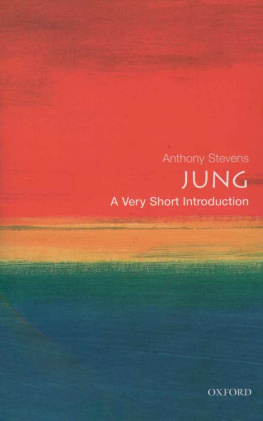BOLLINGEN SERIES LXXIX
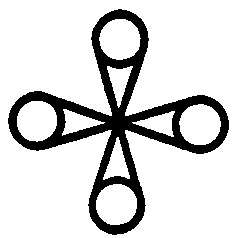
M. ESTHER HARDING
THE I AND THE NOT-I
A STUDY IN THE DEVELOPMENT
OF CONSCIOUSNESS
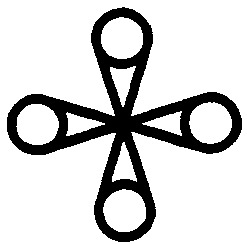
BOLLINGEN SERIES LXXIX
PRINCETON UNIVERSITY PRESS
Copyright 1965 by Bollingen Foundation
Published by Princeton University Press Princeton, N.J.
THIS IS THE SEVENTY-NINTH IN A SERIES OF BOOKS
SPONSORED BY BOLLINGEN FOUNDATION
Princeton University Press books are printed on acid-free paper and meet the guidelines for permanence and durability of the Committee on Production Guidelines for Book Longevity of the Council on Library Resources
Library of Congress Catalogue Card Number 65-11535
ISBN 0-691-01796-4 (paperback edn.)
ISBN 0-691-09749-6 (hardcover edn.)
eISBN: 978-0-691-21333-0
TO
ELEANOR BERTINE
The partner and lifelong friend who has companioned me
throughout the years in the search for understanding of
The Thinker behind the thought
and the Doer behind the deed.
FORWORD
THIS BOOK IS WRITTEN for the general reader who may not be acquainted with Professor Jungs own writings, many of which, intended for the specialist, are not easily comprehended by those who lack the technical knowledge which would enable them to appreciate the value and significance of Jungs researches. Such knowledge is particularly necessary for an understanding of the work that occupied so much of his time and thought during the last twenty years of his life.
I have tried to set forth here the basic ideas on which his psychology rests. Although I have not attempted to make an exhaustive rsum of his writings, since the material of these chapters was originally prepared for an intelligent group of men and women who were not very familiar with Jungs work, I hope that this relatively simple presentation may also meet the needs of a larger public.
The lectures were first given at a conference arranged by the Educational Center of St. Louis, Missouri. They were repeated under the auspices of the Education Department of the Diocese of San Francisco, California. In 1963 they formed the first series of lectures sponsored by the C. G. Jung Foundation for Analytical Psychology in New York.
My warm thanks go to all those who have helped to make the book a reality and especially to the editors for Bollingen Series, who have taken much work off my hands, not only in the preparation of the text but also in supplying the index and the details of the bibliography. I want to thank Mr. Henry Hoyer for his excellent work in executing the diagrams.
I should like particularly to thank Mr. Allen Dulles for his permission to cite some remarks he made in a television interview regarding Professor Jungs attitude to the Allied cause during the war years. Mr. Dulles, who was working in Switzerland for the Office of Strategic Services, was attached to the American Legation in Bern as Special Assistant to the Minister. In his letter giving me permission to quote him he says: The reference to my comment on Jung in a television interview is, to all intents and purposes, accurate.... I did have several talks with Jung, which covered chiefly the psychological reactions of Hitler, Mussolini, and one or two others of the Nazi-Fascist leaders in the face of the events as they developed toward the close of World War II.... I was frequently in Zrich and often journeyed to Jungs house on the Lake. I greatly profited from my conversations with Jung during these days.
And, as always, my grateful thanks and affectionate memories go to Professor Jung, whose insights enable every sincere seeker after the truth to understand how his own unconscious assumptions and projections have distorted his view of the world and have influenced his inner thoughts and convictions. By following the way that Jung has marked out each of us can begin to fulfill the old command: Know thyself.
M. E. H.
New York, May 1964
THE I AND THE NOT-I
I
INTRODUCTION
I N THE FOLLOWING PAGES I plan to explore the stages by which consciousness develops in the human being, so that, from being merely an integer in a continuum, he gradually becomes a person in his own right, a whole person, or, one might say, becomes the unique and complete individual he was intended to be.
This is an enormous assignment, for it involves not only the development of the personal part of the psyche that we call I, together with that other part that contains the forgotten and repressed experiences, impulses, and memories constituting what Jung calls the personal part of the unconscious, but it further demands that this personal I be differentiated from the psychic elements of the collective unconscious, including both instinctive and spiritual experiences, that exert so profound and inescapable an influence upon us. Until this differentiation has taken place, we are and remain merely the puppets of unknown forces, having hardly any power of choice or of self-determination at all. But if, by the use of a suitable technique, we do become aware of them and of ourselves, and succeed in developing a working and satisfactory relation between ourselves and these forces, the whole psychic picture changes, and we become truly individuals with all the dignity of responsible human beings.
Through the long history of mankind, many techniques have been devised and used for this purpose, some with more and some with less successsome quite blindly, others with more insight. I refer, of course, to all those religious and cultural disciplines that aim at the initiation into secret wisdom, enlightenment, and participation in mysteries available only to those who have undergone the necessary experiences. This does not mean that they are necessarily kept secret, but that they are secretthey are inaccessible to us unless we have had the experiences that render us able to enter into them and to appreciate their meaning.
It is in this sense that Jung uses the term process of individuation. For it is a process of psychic development that is accompanied by a progressive increase in consciousnessa development that is greatly helped and speeded up by a psychological analysis, not by a Freudian analysis, which is concerned only with the personal unconscious and the achievement of a workable adaptation to the external world and takes no account of those superior values of the psychic and spiritual world that are hidden from us in the darkness of the unknown hinterland, but by a Jungian analysis. The work of Jung was chiefly concerned with the contents of the collective unconscious, and any Jungian analysis that goes at all deeply into the psyche will activate the dynamic factors of the inner world. Jung has demonstrated that it is only by coming into direct relation to these superordinated values, in all their numinosity, that the individual can realizemake realhis true individuality, but this result cannot be achieved through a merely intellectual understanding. For the individuality consists not only of the personal ego, but of the personal ego plus the nonpersonal psychic factors, which together make up the totality of the Self. The process by which this is brought about corresponds to the religious experience of the Journey of the Soul in a most remarkable way. In my

